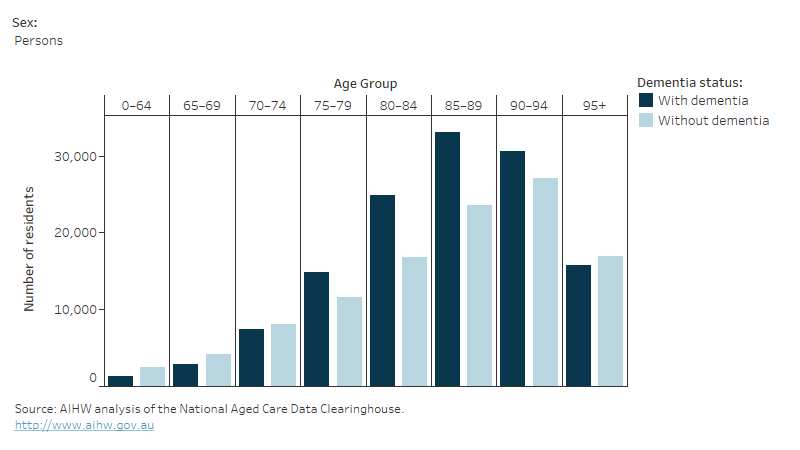Aged care and support services available to people with younger onset dementia
While there are a range of aged care services, as well as dementia-specific services, available for those in need of support, they may not be suitable for people living with younger onset dementia. For further information about aged care see Overview of Australia’s aged care system. While living in a residential aged care facility may be their setting of choice, younger people are generally considered to be better served by other services (such as specialist disability accommodation provided through the National Disability Insurance Scheme (NDIS) or financial support through the Disability Support Pension) (see Box 10.1).
The Royal Commission into Aged Care Quality and Safety in its final report made a high priority recommendation that all people under the age of 65 currently living in residential aged care facilities should be moved out of residential aged care and into other, more appropriate care types (Royal Commission 2021). Through the Younger People in Residential Aged Care Strategy 2020–25, the Australian Government has committed to ensure that apart from exceptional circumstances, no person under the age of 65 lives in residential aged care. For the most recent data available to track progress being made towards these targets, see Younger people in residential aged care.
Box 10.1: Support services for people with younger onset dementia (aged under 65)
People with younger onset dementia may be eligible for support through the NDIS (NDIA 2019) and financial support through the Disability Support Pension (Services Australia 2023), in addition to aged care services. For further information about the use of the Disability support Pension see Income support recipients in Younger onset dementia: new insights using linked data. NDIS data is publicly accessible on their website via the Participant datasets page.
National Disability Insurance Scheme (NDIS)
The NDIS provides support for people aged under 65 who have a significant, ongoing disability. Through this scheme young people are provided with funding in order for them to access a range of support services and programs, including supports that assist people with daily personal activities (such as gardening, household chores and meal preparation), making home modifications to suit their needs, programs that enable and encourage participation in work or social activities, and funding towards therapeutic services.
Disability Support Pension
The Disability Support Pension provides financial help for people with an on-going physical, intellectual or psychiatric condition that prevents that person from working (such as people with younger-onset dementia). This pension is available to people aged 16 and over (who are less than pension age), with eligibility and payment amounts based on the person’s condition and level of impairment, and their assessable income and assets.
People with younger onset dementia in residential aged care
This page uses Aged Care Funding Instrument (ACFI) data to present information on people with younger onset dementia who were living in permanent residential aged care. The ACFI captures the day-to-day care needs that contribute the most to the cost of providing individual care. The ACFI appraisal is centred on assessing an individual’s care needs and consists of 12 needs-based questions, categorised into 3 domains; Activities of daily living, cognition and behaviour, and complex health care.
Ratings for each domain are used to determine the level of funding required and to assign care. High levels of care are indicated for those who need almost complete assistance with all tasks. This includes providing 24-hour care, either by or under the supervision of registered nurses, combined with support services, personal care services, and allied health services. For more information about this data source, see the Residential aged care section.
In 2021–22, around 1,300 people (672 men and 627 women) with dementia aged under 65 were living in permanent residential aged care (Figure 10.7), representing 35% of all younger people living in residential aged care. People with younger onset dementia aged under 65 were most likely to require high levels of care in the cognition and behaviour domain (88%) and the activities of daily living domain (70%), with a lower proportion requiring high levels of care in the complex health care domain (51%).
Figure 10.7: People with and without dementia living in permanent residential care in 2021–22: number by age and sex
A bar graph showing that for people with dementia, the number of people living in permanent residential care increases gradually with age, peaking at the age group of 85–89, decreasing slightly at age group 90–94 and then dropping off in the 95 and over age group.

NDIA (National Disability Insurance Agency) (2023), Younger People in residential Aged Care Strategy 2020–25, accessed 13 July 2023.
Royal Commission (2021) Final report: Care, Dignity and Respect, Royal Commission, Australian Government, accessed 10 October 2020.
Services Australia (2023) Disability Support Pension, Services Australia, Australian Government, accessed 15 June 2023.


